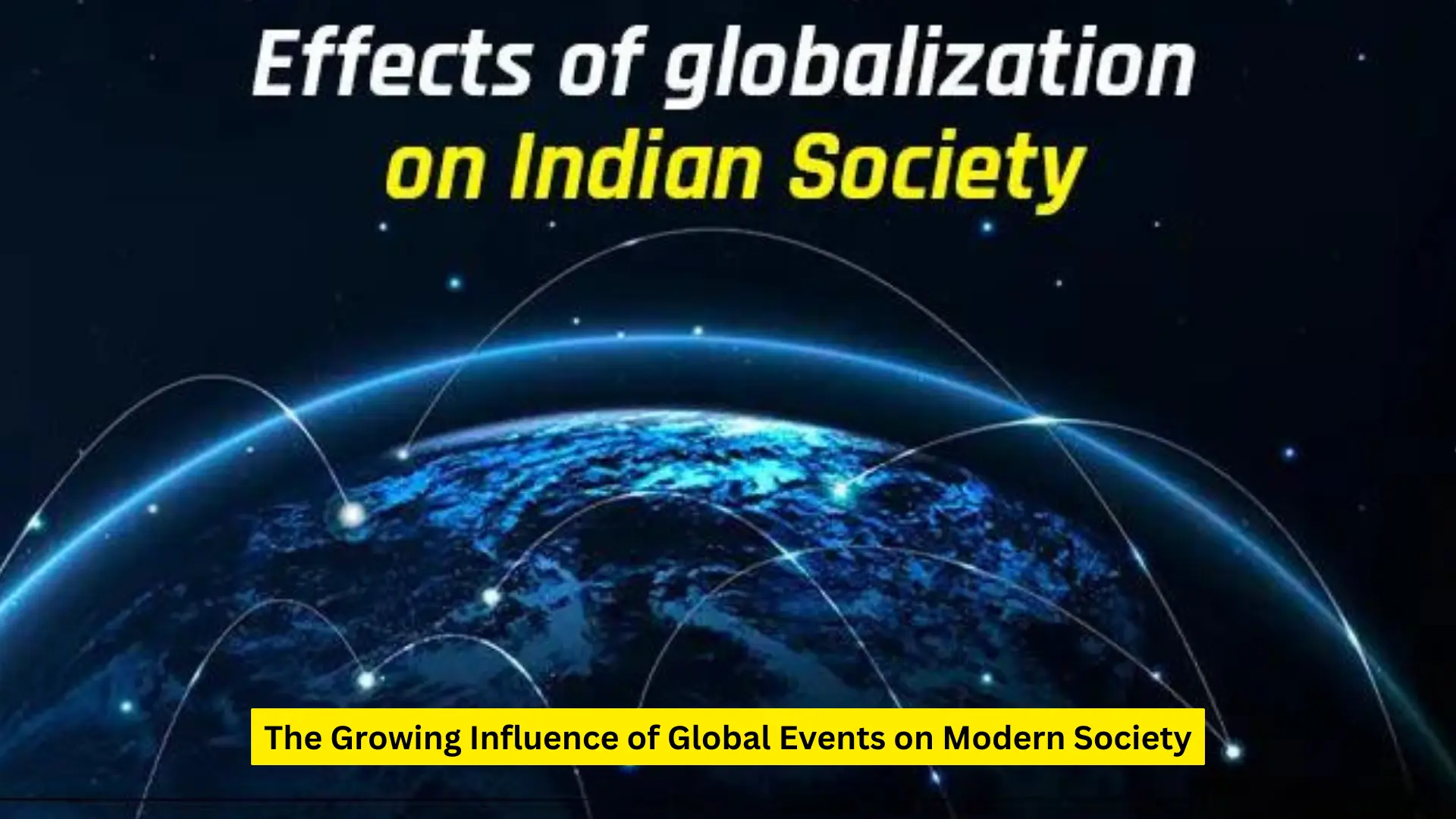In today’s interconnected world, the impact of global events on modern society cannot be overstated. From geopolitical shifts to technological advancements, these events shape our daily lives in profound ways. Understanding these influences is crucial for navigating the complexities of contemporary life. This article explores the multifaceted effects of global events on society, examining key areas such as politics, economy, technology, and culture.
Political Shifts and Global Stability
Geopolitical Dynamics
Global events significantly affect political stability and governance worldwide. Major geopolitical events, such as international conflicts, trade wars, and diplomatic negotiations, reshape the global order. For instance, the ongoing tensions between major powers can lead to realignments in international alliances, impacting global peace and security.
Impact on Domestic Politics
Domestic politics are also influenced by global events. Governments often adjust their policies in response to international developments. Economic sanctions, for instance, can force countries to reconsider their economic strategies. Additionally, global movements, such as climate change activism, can drive legislative changes at the national level.
Economic Implications of Global Events
Market Volatility and Trade
Economic stability is deeply intertwined with global events. Market volatility often results from geopolitical tensions, natural disasters, and pandemics. Trade agreements and disputes have a direct impact on global supply chains, affecting everything from the availability of consumer goods to the stability of employment in various sectors.
Investment and Growth
Global events also influence investment patterns. Political stability, or the lack thereof, can either attract or deter foreign investment. Major events, such as the Brexit referendum, have shown how uncertainty can lead to significant economic shifts, affecting investor confidence and economic growth.
Technological Advancements and Global Connectivity
Innovation Driven by Necessity
Technological advancements are frequently accelerated by global events. For instance, the COVID-19 pandemic spurred rapid innovation in medical technology and remote communication tools. The need for efficient solutions in times of crisis drives technological progress, which in turn reshapes industries and societal norms.
Global Connectivity and Information Flow
The advent of the internet and digital technologies has enhanced global connectivity, allowing for the swift exchange of information. Social media platforms, in particular, play a crucial role in disseminating news and shaping public opinion. This increased connectivity has both positive and negative implications, influencing everything from political campaigns to the spread of misinformation.
Cultural Exchange and Social Change
Cultural Integration
Global events often lead to increased cultural exchange and integration. Migration, tourism, and international collaborations contribute to the blending of cultures. This cultural exchange enriches societies, fostering greater understanding and appreciation of diversity. However, it can also lead to cultural homogenization, where local traditions and identities are overshadowed by global trends.
Social Movements
Global events can catalyze social movements, leading to significant societal changes. For instance, the Black Lives Matter movement gained international momentum following high-profile incidents of racial injustice in the United States. Such movements highlight the interconnectedness of global society and the shared challenges faced by humanity.
Environmental Impacts and Sustainability
Climate Change and Global Policies
Environmental issues are a major focus of global events. Climate change, in particular, has prompted international agreements and policies aimed at sustainability. The Paris Agreement is a prime example of a global effort to combat climate change through collaborative action. These policies have far-reaching implications for industries, economies, and lifestyles worldwide.
Natural Disasters and Resilience
Natural disasters, exacerbated by climate change, are increasingly common global events with significant societal impacts. The frequency and severity of events such as hurricanes, wildfires, and floods highlight the need for resilient infrastructure and disaster preparedness. These events also emphasize the importance of international cooperation in providing aid and support to affected regions.
Health Crises and Public Health Infrastructure
Pandemics and Healthcare Systems
The COVID-19 pandemic underscored the vulnerability of global public health systems. Such health crises highlight the importance of robust healthcare infrastructure and international collaboration. The rapid development and distribution of vaccines during the pandemic demonstrated the potential for scientific advancements to address global health challenges.
Mental Health Awareness
Global events can also impact mental health on a large scale. Economic instability, social isolation, and the constant flow of distressing news contribute to rising levels of stress and anxiety. Addressing mental health issues has become a critical component of public health strategies in the wake of global crises.
The Role of Media in Shaping Perceptions
News Media and Public Opinion
The media plays a pivotal role in shaping public perception of global events. News outlets provide critical information and analysis, influencing how societies understand and respond to international developments. The framing of news stories can affect public opinion and policy decisions, underscoring the media’s influence on societal attitudes.
Social Media and Citizen Journalism
Social media platforms have transformed the landscape of news dissemination. Citizen journalism allows individuals to share firsthand accounts of events, often bypassing traditional media gatekeepers. While this democratizes information, it also presents challenges in verifying the accuracy of reports, leading to potential misinformation.
Conclusion
Global events are powerful forces that shape the political, economic, technological, cultural, and environmental landscapes of modern society. Understanding these influences is essential for navigating the complexities of our interconnected world. By recognizing the multifaceted impacts of global events, we can better prepare for the challenges and opportunities they present.

